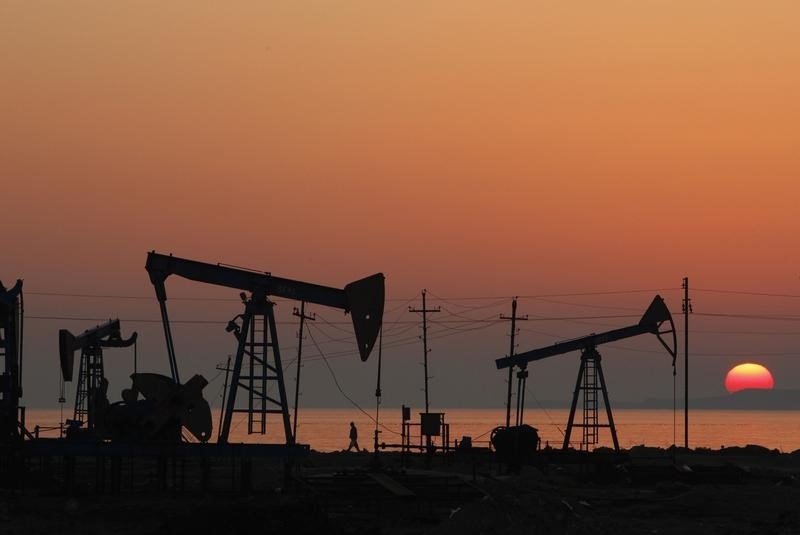Quiver Quantitative - Oil prices advanced as geopolitical tensions flared in the Middle East, with reports of Israeli tanks reaching the center of Rafah in Gaza and a vessel attack in the Red Sea (NYSE:SE). Brent crude traded above $83 a barrel, while West Texas Intermediate (WTI) topped $79. The escalation in Gaza and an attack on a Greek-managed bulk carrier in the Red Sea have heightened market jitters.
Global benchmark Brent has risen this year due to persistent geopolitical risks and OPEC+’s roughly 2 million barrels a day of output cuts. The group is expected to prolong its curbs into the second half of 2024 at a meeting on Sunday. Despite these factors, oil prices have dipped since early April due to signs of weakening demand from Asia, causing Brent’s prompt spread to approach a bearish contango structure, indicating supply is plentiful relative to consumption.
Market Overview:
- Brent crude trades above $83 a barrel, WTI tops $79.
- Israeli military incursion reported in Gaza, raising supply disruption concerns.
- Attack on commercial vessel in Red Sea adds to risk premium.
- OPEC+ production cuts and expectations of rising US summer demand support prices.
- Investors eye US fuel demand data post-Memorial Day weekend.
- OPEC+ meeting on Sunday to determine production policy for second half of 2024..
- Continued monitoring of Israeli-Palestinian conflict and Red Sea security situation.
The bulk carrier Laax was targeted with three missiles around 54 miles southwest of the Yemeni city of Hodeida, according to maritime security firm Ambrey. Yemen’s Houthis, who have carried out a series of assaults on ships transiting the crucial waterway over the past few months in retaliation for Israel’s war in Gaza, have not been identified as the attackers. The ongoing conflict poses a risk to oil markets, although it has largely remained contained without major disruptions to crude flows from the Middle East, which accounts for about a third of global output.
“A confluence of factors suggests some upside sensitivity in oil — from fraught geopolitics to inventory drawdown to OPEC’s assumed preference to maintain curbs,” said Vishnu Varathan, chief economist for Asia ex-Japan at Mizuho Bank. However, he added that “the Gaza situation is only a warning not to be aggressively short, but not quite the unbridled bullish trigger.” Investors will also be looking for signs of US fuel demand data after the Memorial Day holiday, which traditionally marks the start of the peak summer driving season.
This article was originally published on Quiver Quantitative
